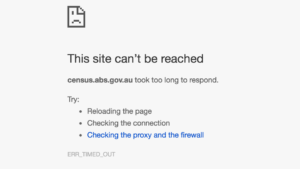 As the year draws rapidly to a close, the thoughts of many a manager turn to that most dreaded of annual tasks – the performance review. Often ignored, frequently monolithic, a good idea that has been lost in translation to some awful Word document template. Dislike them or loathe them, they are out there. Sadly, this kind of prescriptive process can often discourage what should be a worthwhile activity, that of providing some sort of formal feedback to staff on their year in review, hopefully as a supplement to the regular feedback they have been getting throughout the year (wishful thinking, I know).
As the year draws rapidly to a close, the thoughts of many a manager turn to that most dreaded of annual tasks – the performance review. Often ignored, frequently monolithic, a good idea that has been lost in translation to some awful Word document template. Dislike them or loathe them, they are out there. Sadly, this kind of prescriptive process can often discourage what should be a worthwhile activity, that of providing some sort of formal feedback to staff on their year in review, hopefully as a supplement to the regular feedback they have been getting throughout the year (wishful thinking, I know).
But what about feedback going the other way from staff given to their managers, particularly in the case of senior level managers?
In my fifteen years of reporting to senior managers or executives, not once have I been asked for formal feedback on their performance throughout the year. Don’t get me wrong, I’ve had some really good managers (and some bloody awful ones), but not once has any of them given me a formal opportunity to provide structured feedback. This year, to show that I’m willing to lead by example, I’ve set up a formal feedback process to give my senior leaders the chance to share their thoughts on my 2016.

 Well, I think its safe to call the result of this year’s Australian census, making it a much quicker call than our Federal election last month – the results are in, and the ABS lost. Lost to the point that makes the Australian cricket team’s recent performance against Sri Lanka look not all that bad in comparison.
Well, I think its safe to call the result of this year’s Australian census, making it a much quicker call than our Federal election last month – the results are in, and the ABS lost. Lost to the point that makes the Australian cricket team’s recent performance against Sri Lanka look not all that bad in comparison.
